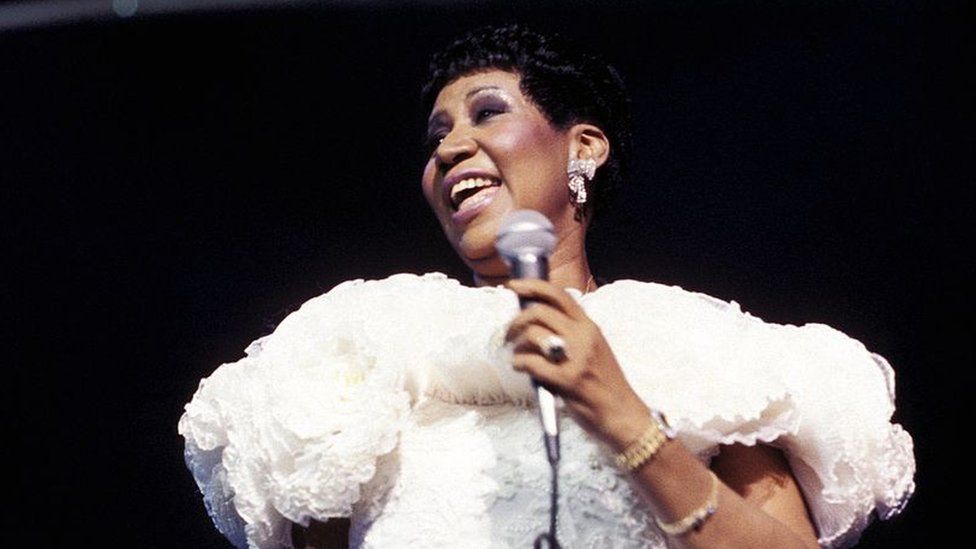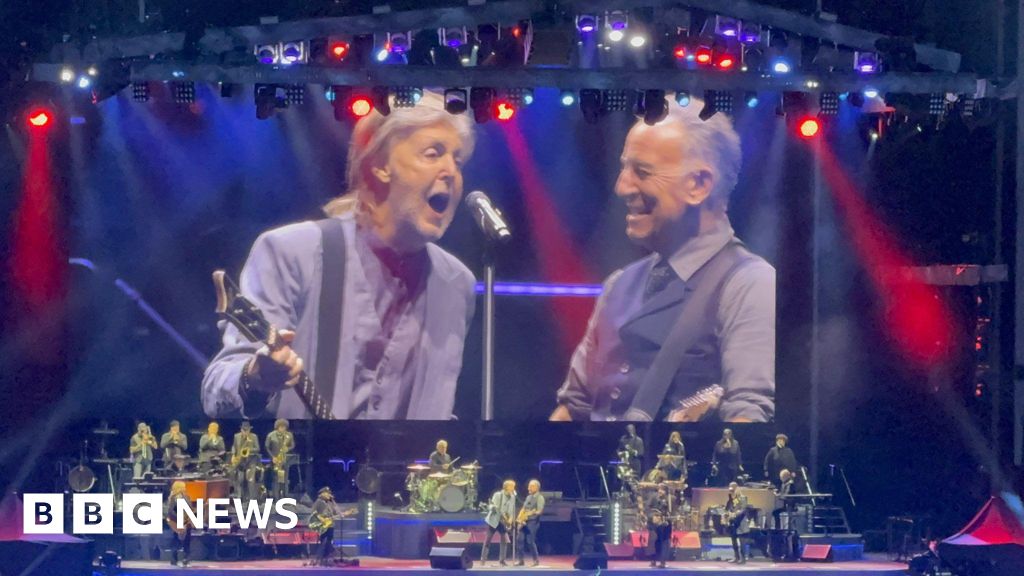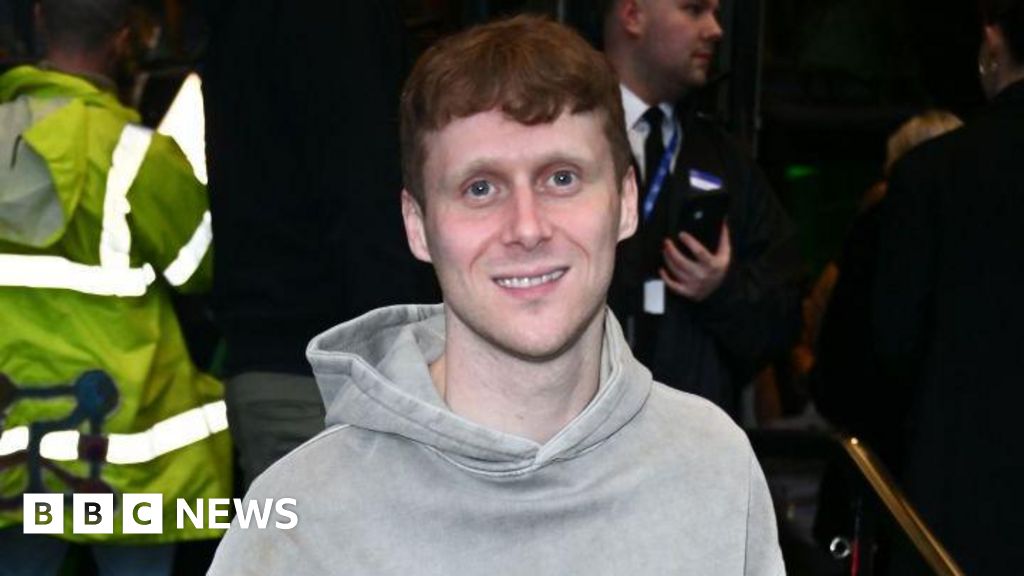ARTICLE AD BOX
By Mark Savage
BBC Music Correspondent
 Image source, Getty Images
Image source, Getty Images
Aretha Franklin had 17 top 10 singles in the US before she died in 2018
Jules Buckley can't remember the first time he heard Aretha Franklin.
It might have been on "That's Soul Volume 1" - one of the many vinyl compilation albums he raided from his dad's collection as a child. But it could also have been Franklin's scene-stealing performance of Think in The Blues Brothers movie, which he watched with his brothers in the family living room.
"But the main thing I remember as a tiny little kid was that, whenever anything of hers would come on, it sounded so much better than whatever the last track had been," says the musician.
"It was an emotional response, and I still get that every time I hear her voice."
The effect hasn't dimmed over the last three years, as he programmed a concert of Franklin's music for the BBC Proms, which he'll conduct on Monday.
It's the latest in a long line of groundbreaking Proms from Buckley, who's previously brought the sounds of Ibiza, grime, Nina Simone and Quincy Jones to the Royal Albert Hall.
A Grammy-winning musician, he's known for incorporating pop music into his projects and counts Arctic Monkeys, Massive Attack and Stormzy among his past collaborators.
But despite all that experience, he still gets nerves when starting a new project.
"You normally just sort of strip off naked and run screaming into a field," he laughs. "And then once you've got it all out, you go back to Spotify or iTunes and you start a lengthy process of listening to the music and reading and watching."
Distilling Aretha Franklin's storied career into a one-off, 90-minute concert was a "daunting challenge", but Buckley had an enthusiastic partner-in-crime - US singer Sheléa Frazier, who'll perform classics like Respect, Chain Of Fools and (You Make Me Feel Like) A Natural Woman on stage at the Royal Albert Hall.
A protégé of Quincy Jones and a former backing vocalist for Stevie Wonder, she's no stranger to this sort of gig.
In 2013, she dared to cover Whitney Houston at a Grammy Museum tribute concert; while she's also performed the hits of vocal titans like Dionne Warwick, Barbra Streisand and Tina Turner on stage.
"I always want to bring something that hasn't been done before," says the 41-year-old, on Zoom from America. "The less travelled road, you know?"
So as well as the crowd-pleasing favourites, she was keen to include deeper cuts like Skylark, a jazz standard that Franklin covered on her fourth album Laughing On The Outside; and Precious Memories, from the 1972 gospel album, Amazing Grace.
"I wanted to tell the cohesive story of Aretha," says Frazier. "We've seen her depicted in a television series, we've seen her depicted in a major motion picture film - but they almost had to stick to the bullet points. I wanted to tell the story of her in church because that was the core of who she is."
Image source, Getty Images
Image caption,Sheléa will perform 17 of Aretha's songs at the Prom on 22 August
Anyone with even a passing knowledge of Franklin's music will recognise the truth of that statement. The rich warmth and empathy of her vocals, those percussive riffs, her righteous fervour, the invigorating build-ups and the call-and-response harmonies she shared with her backing singers - they were all shaped by her gospel roots.
For Frazier, it was the musician's phrasing that set her apart.
"It's that Billie Holiday thing, you know? She's not always on the beat, sometimes it's off, but she'll catch you up. And with Aretha I think you hear her musicianship in her timing.
"It changes her perspective on melody, it changes her perspective on tempo, timing, everything."
She learned the techniques from her mother, Barbara Siggers Franklin, and put them into practice during her father's sermons at Detroit's New Bethel Baptist Church after her parents separated.
Broadcast on the radio, CL Franklin's dynamic services brought him to nationwide attention, and he took the family on the road with his own revival show.
"It was almost like they were a travelling band," says Frazier. "Aretha would open the show up and he would close it with the sermon, so she had to bring it.
"Their very survival might have been based off how well she moved the audience. And I think that is what gave Aretha her edge. She was a titan from the beginning."
It's a background Frazier can relate to. At the age of 12, she became the sole musician at California's Bakersfield Southside Church, often having to improvise her vocals in the middle of a service.
"I would just be playing [piano] for the offering, or whatever was happening, and all of a sudden my dad would just bring the microphone just put in front of my mouth," she recalls. "I'd be like, 'OK, I gotta sing something.'"
Image source, Getty Images
Image caption,Franklin recorded several gospel albums over the course of her career
Frazier says Franklin was lucky that her father didn't frown upon secular music - hosting the likes of jazz pianist Art Tatum, the singer Dinah Washington, and soul star Sam Cooke at the family's home.
He later gave Aretha permission to branch out into jazz and pop music, at a time when the gospel community frowned upon fraternising with the unconverted.
"I'm sure she was told just to keep singing for Jesus," says Frazier, "because that's what you tell people who have a gift in the church: 'Don't sing for the world, only sing sacred music'."
Frazier speaks from experience: This was the exact advice she received at the start of her career.
She also played gospel legend Dorinda Clark - who faced similar challenges - in the TV movie of her life.
"The Clark Sisters were actually ostracised by their church because their music was being played in clubs," Frazier recalls.
"They were so small minded that they condemned it, even when the sisters sang Hallelujah at the Grammys, instead of seeing that, 'Wow, they can actually bring light to totally different walks of faith and people'.
"Thankfully Aretha had a father who, remarkably for a minister, was musically open."
Throughout her career, Franklin returned to the church, recording albums like Amazing Grace and One Lord, One Faith, One Baptism amidst her impressive catalogue of 17 US top 10 singles and 20 number one R&B hits.
Buckley says it was almost impossible to whittle those songs down to a 17-song setlist. "Think, Respect, Chain of Fools. They were definitely top of the list for me. But you invariably have to kill some darlings along the way".
Image source, Getty Images
Image caption,Jules Buckley will debut his new orchestra at the Proms
Setting those funk and soul classics to an orchestral backing poses a challenge. How do classically-trained musicians locate the groove of a song like Rock Steady, for example, without sounding hopelessly gauche?
Luckily, Buckley has form in this area through his collaborations with Thriller producer Quincy Jones. And, for the Aretha Franklin Prom, he'll be debuting his new ensemble, the Jules Buckley Orchestra.
"I'd wanted to put together a new group for quite a long time, to be honest, and I really carefully thought about who to ask, and how to select your starting eleven, so to speak.
"And so everybody on stage for this gig is a massive Aretha fan. They understand the music, they understand playing in the pocket [of the groove], and if we really want to take the audience on the journey and support Sheléa in her work, then that's what you need.
"We're going to hit it all guns blazing but with our own little twists along the way."

 2 years ago
34
2 years ago
34








 English (US) ·
English (US) ·